Indianapolis Brain Injury Lawyer

A Traumatic Brain Injury (TBI) is a serious injury that is common after car accidents in Indianapolis. Unfortunately, some symptoms of traumatic brain injuries are not always immediately apparent, but if left untreated, they can lead to complications that result in permanent impairments and possibly even death.
At Crossen Law Firm, our team of experienced Indianapolis traumatic brain injury attorneys is dedicated to advocating for those experiencing a severe or mild traumatic brain injury.
We understand the emotional, physical, and financial toll an accident resulting in a traumatic brain injury claim can have on your life.
Our traumatic brain injury lawyers are here to guide you through the legal process every step of the way. Reach out for a free case evaluation today so we can ensure you get the compensation you deserve.
Call an experienced Indianapolis brain injury lawyer today at (317) 401-8626 to discuss compensation options for traumatic brain injury cases.
Why Are Head and Traumatic Brain Injuries Serious?
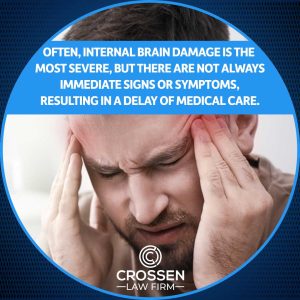
Unfortunately, when symptoms of traumatic brain injury are left untreated, they can worsen and lead to complications.
Some of the more severe secondary brain injuries can result in permanent damage, such as paralysis, and in extreme traumatic brain injury cases, they can be fatal.
Call Crossen Law Firm at (317) 401-8626 for a free traumatic brain injury case evaluation or contact our attorneys online.
How Head and Traumatic Brain Injuries Happen
Head injuries can occur for any number of reasons. The Centers for Disease Control reports that more than 60,000 traumatic brain injury and TBI-related deaths occurred in 2019, with car accidents and sports-related accidents being the primary causes of traumatic brain injuries. The Centers for Disease Control reports there were over 30,000 traumatic brain injuries in Indiana.
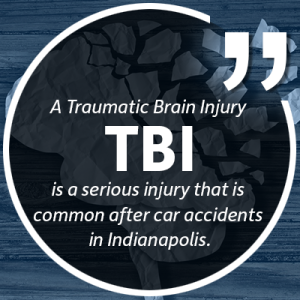
Some other common causes of traumatic brain injuries include:
If you suspect a loved one is suffering from primary or secondary brain injuries, seek immediate medical attention. Even if you feel fine initially, the symptoms of head and brain injuries do not always show up right away.
Keep in mind you may be able to seek compensation from the insurance company for the person who caused the accident that led to your injury.
If you sustained a head or brain injury, contact a skilled Indianapolis brain injury lawyer right away at (317) 401-8626.
What Financial Compensation Is Available for a Traumatic Brain Injury Case
Motor vehicle accidents or sports injuries that cause a head injury may be grounds for a brain injury lawsuit to receive compensation for damages. The medical bills and treatments for sports injuries alone can be quite expensive. The injured person should retain a firm of experienced head injury lawyers who can advocate for their rights to ensure they receive the full and fair compensation possible.
Damages you can be awarded financial compensation for after a head and brain injury include:
Medical bills: Compensation covers the extensive medical bills related to hospitalization, surgeries, rehabilitation, medication, therapy, and any other healthcare expenses incurred due to the injury. This includes the cost of future medical care.
Lost wages: This includes compensation for income lost during the recovery period when the victim is unable to work due to their injury. Your Indianapolis brain injury attorneys will also fight for compensation for future lost wages.
Loss of future earning potential: If the injury leads to long-term or permanent disability, compensation may account for the diminished ability to earn income in the future.
Property damage: In addition to personal injury, compensation may cover damage to the victim’s vehicle or other property caused by the accident.
Physical pain and suffering: Compensation is awarded for the physical pain and discomfort endured as a result of the injury, including chronic pain and permanent disabilities.
Emotional distress: Damages account for the psychological trauma of the injury, such as anxiety, depression, PTSD, and other emotional trauma experienced by the brain injury victim.
Loss of enjoyment of life: Compensation acknowledges the negative impact many brain injury victims experience, including limitations on activities and hobbies previously enjoyed.
Loss of consortium: This refers to the negative impact the injury has on the injured person’s relationship with their spouse or family members, including loss of companionship, affection, and support.
Punitive damages: In cases where an injury occurs due to extreme negligence or intentional misconduct, your Indianapolis brain injury attorney can fight for punitive damages to punish the at-fault party.
Types of Head and Traumatic Brain Injuries
When a head or brain injury is sustained, medical professionals will generally classify it in one of two ways: closed or open.
Closed Traumatic Brain Injuries
A closed head injury or TBI occurs when the skull is not exposed or compromised. Though this type of serious brain injury may not appear that bad, the internal damage can still be quite severe. These are the type of head and brain injuries that often go undiagnosed, leading to complications. You should never assume you are okay just because you can’t see any external damage.
Open (Penetrating) Head Injury
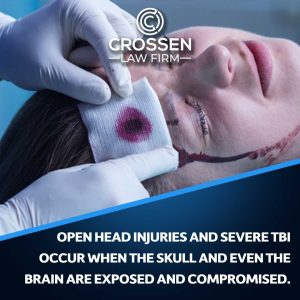
Beyond the initial classification of open or closed, head trauma is further categorized depending on the type of injury that occurs. Further classification includes primary and secondary injuries.
Primary Head Injuries
An injury is designated as primary when it occurs at the time of the accident.
Hematomas occur when the blood vessels rupture, causing blood to pool inside the brain.
Subdural hematomas occur between the brain and its outermost covering.
Epidural hematomas involve bleeding between the skull and the outermost covering of the brain.
Intracerebral hematomas occur within the brain tissue itself.
Subarachnoid hemorrhage involves bleeding into the space between the brain and the arachnoid membrane.
Intraventricular hemorrhage refers to bleeding into the brain’s ventricular system.
Skull Fractures occur from breaks, cracks, and hairline fractures. There are generally three different types of skull fractures:
Linear fractures are single, thin breaks in the skull bone.
Depressed fractures involve a portion of the skull being pushed inwards.
Basilar fractures occur at the base of the skull, often associated with severe head trauma.
Contusions are essentially a bruise. Head contusions occur when there is mild bleeding and bruising within the brain tissue.
Concussions happen when the head and brain experience a forceful jolt or are violently shaken.
Diffuse Axonal Injuries (DAI) can happen like a concussion—when the head and brain are shaken—however, DAIs result in further damage from the connections between the brain cells being torn.
Secondary Injuries
A secondary brain injury can happen when changes or further damage occur as a result of the initial brain injury itself.
Some common secondary head injuries following an accident include:
- Hypotension: This occurs when the brain is starved of oxygen and nutrients due to extremely low blood pressure.
- Hypoxia: Hypoxia occurs due to a lack of oxygen in the brain.
- Ischemia: When there is not enough blood being supplied to the brain, a patient can experience ischemia.
- Cerebral Edema: Cerebral edemas occur when there is a buildup or leaking cerebrospinal fluid around the brain.
Suffering permanent brain injuries from an accident? Call Crossen Brain Injury Law Firm at (317) 401-8626 for a free traumatic brain injury lawyer case evaluation or contact our us online.
Head and Traumatic Brain Injury Symptoms

General symptoms of head and brain injuries can include:
- Headaches
- Nausea
- Vomiting
- Dizziness
- Fatigue
- Blurred vision
- Speech impairments
- Tinnitus
- Changes in taste and smell
- Disorientation
- Light and sound sensitivity
- Mood swings
- Depression
- Insomnia
- Extended periods of sleeping
You should always seek immediate medical care after an accident.
However, if any of the following symptoms occur, you should get to a hospital as soon as possible as they are signs of more severe trauma that indicate a medical emergency:
- Loss of consciousness
- Extreme and painful headaches
- Uncontrollable vomiting
- Seizures
- Dilated pupils
- Loss of coordination
- Trouble waking from sleep
- Extreme confusion and disorientation
- Difficulty speaking
- Clear fluids draining from the ears
How Are Traumatic Brain Injuries Diagnosed?

To diagnose your head injury, the doctor will typically ask you a series of questions in addition to ordering tests like an MRI or a CT scan. These imaging tests can give them a better idea of what type of brain injury victims occurred and how severe the damage is. If the injury is mild, you may be sent home with orders to rest and take pain relievers as needed.
Call a Crossen Traumatic Brain Injury Lawyer at (317) 401-8626 for a free consultation or contact our firm online.
Immediate Medical Treatment for Head and Brain Injuries
For moderate to severe brain injuries, early treatments may include:
Anti-seizure medications: Prescribed to prevent or control seizures, which are common after brain injury.
- Coma-inducing medications: Used to induce a medical coma in severe cases to reduce brain swelling and pressure.
- Intracranial pressure gauge: Doctors may insert a pressure monitoring device into the patient’s skull to guide treatment decisions, such as adjusting medications or interventions to prevent further damage.
- Surgery: Surgical interventions may be necessary to remove blood clots, repair damaged blood vessels, or relieve pressure on the brain caused by swelling or hematoma.
- Monitoring and supportive care: Close monitoring in an intensive care unit (ICU) may be required to manage complications such as intracranial pressure and ensure adequate oxygen and blood flow to the brain.
- Medications for symptom management: Medications may be prescribed to manage symptoms such as pain, agitation, depression, or anxiety that can occur following a brain injury.
- Hypothermia therapy: Controlled lowering of body temperature to reduce brain swelling and limit further damage.
- Ventriculostomy: Insertion of a drain into the brain’s ventricles to drain excess cerebrospinal fluid and relieve pressure.
Treatment plans are tailored to the individual’s specific needs, and a multidisciplinary approach involving neurologists, neurosurgeons, rehabilitation specialists, and other healthcare professionals is typically employed to optimize outcomes.
Make the right call. Call Crossen Personal Injury Attorneys at (317) 401-8626 for a free consultation with an Indianapolis Traumatic Brain Injury Attorney or contact our firm online.
Ongoing Medical Treatment for Head and Brain Injuries
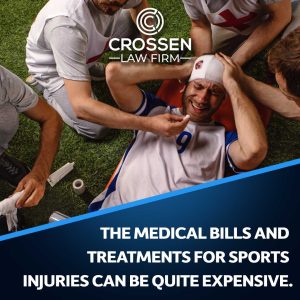
Ongoing treatment for traumatic brain injuries can include:
Rehabilitation therapies: Once stable, rehabilitation therapies such as physical therapy, speech therapy, occupational therapy, and cognitive therapy are often implemented to promote recovery and return to normal brain function.
Hyperbaric oxygen therapy: Administration of oxygen at higher-than-normal atmospheric pressure to increase oxygen delivery to damaged brain tissue and promote healing.
Psychological support: Psychological counseling and support may be beneficial for both the patient and their family members to cope with the emotional and psychological challenges associated with the injury.
Neuro-stimulation techniques: Non-invasive or invasive methods such as transcranial magnetic stimulation (TMS) or deep brain stimulation (DBS) to modulate brain activity and improve cognitive function or mood.
Long-term support for accident victims with head injuries can easily grow to hundreds of thousands of dollars.
Explore Your Legal Options with an Indianapolis Traumatic Brain Injury Attorney
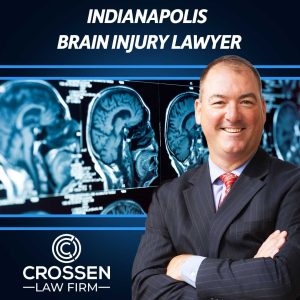
At Crossen Law Firm, an Indianapolis Lawyer will fight tirelessly on your behalf to help you get what you are owed, and you will not owe us anything unless we win your case.
Don’t suffer because of someone else’s negligence. Call us today to work with an experienced brain injury attorney who can stand up to the at-fault party’s insurance company after you’ve suffered a Traumatic Brain Injury (TBI).
Call Crossen Personal Injury Attorneys at (317) 401-8626 for a free consultation with an Indianapolis Traumatic Brain Injury Attorney or contact our firm online.

-
“Trevor was courteous, professional, fair, and an excellent communicator throughout our entire interaction! Would highly recommend.”
- Hussain -
“What a relief it was that we had someone like Trevor Crossen on our side. Everyone in the office were very pleasant and helpful. We would have been lost if not for him. This is a group that you need to be there when you have to fight for what is right. Automobile accidents are hard enough on you without having to have someone see you through all the paperwork and legal issues. There is no one else I would trust to take us through than Crossen Law Firm they are the best!”
- Bob Taylor -
“Mr. Trevor Crossen has been sìuch a blessing. I was so lost when we first met. He took great care to make sure that I was treated with dignity, he walked me through the whole process from beginning to the end. I had no idea what to expect but he took the time to explain everything and made sure I was treated the way I should be. I would highly recommend Trevor to anyone. The others in the office were so kind and helpful. If you want someone truly on your side Trevor Crossen is the man you need. Thank you all for being there for me.”
- Denise Taylor -
“I honestly don’t know where to start! Trevor is an exceptionable person, he honestly cares for those he works with and his clients! He has completely changed my mind of how lawyers act! He is a man of integrity and I, especially today on thanksgiving, am thankful I chose his law firm to represent me! I highly recommend that you choose Crossen law firm!! Thank you Trevor for all that you’ve done for me and continue to do!”
- Ben Steiner -
“Trevor and His Team Were a "True Guiding Light" for MY Family & I During a Very Difficult and Emotional Time in Our Lives! Thank You Team Crossen”
- Joe A

Why Crossen Law Firm?

Call our office today at (317) 401-8626 to discuss your case.

 317-401-8626
317-401-8626 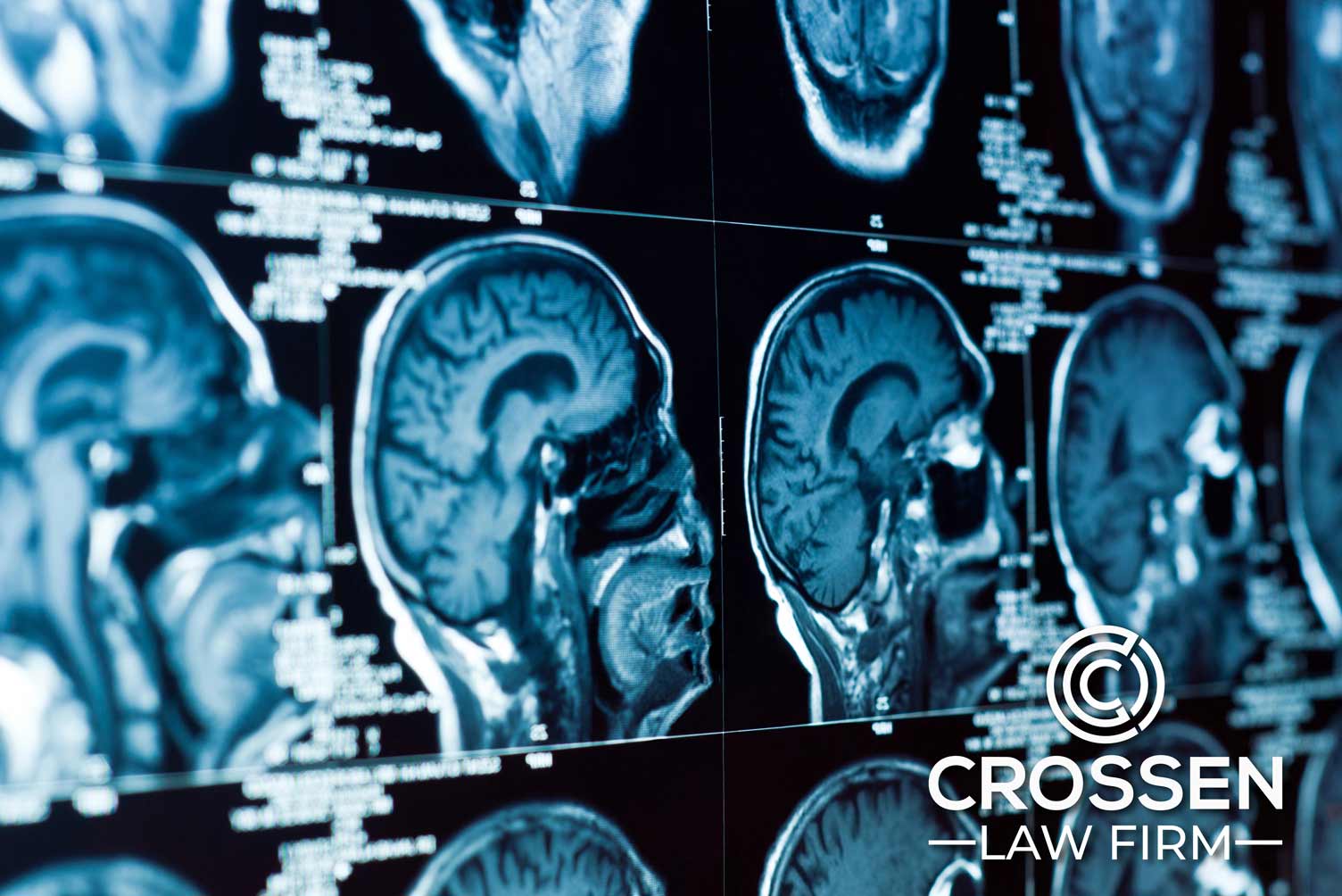
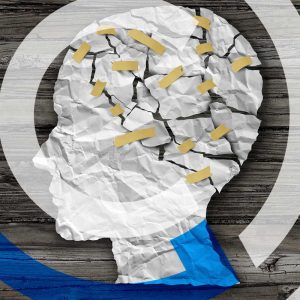 Anti-seizure medications:
Anti-seizure medications: